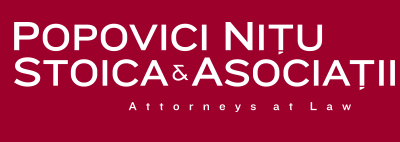- About Us
-
Expertise
- Banking & Finance
- Capital Markets
- Competition & Antitrust
- Corporate & Commercial
- Data Privacy
- Employment & Pensions
- Energy & Natural Resources
- Gambling & Betting
- Healthcare & Pharmaceuticals
- Insurance
- Intellectual Property
- International Arbitration
- Litigation
- Mergers & Acquisitions
- Project Finance/PPP, Concessions & Infrastructure
- Public Procurement
- Real Estate
- Restructuring & Insolvency
- Sports Law
- Tax
- Telecommunications, Media & Technology
- Transports & Logistics
- White Collar Compliance & Defense
- Our team
- Careers
- Publications
- News and Press
- Contact
Press Reviews
Briefing Romania - When deciding whether to invest in Romania, the country's many attributes leave one asking: why not?
As a Romanian transactional lawyer I often face this question: why should we invest our money in your country? Here are five good reasons that will stand the test of time:

Romania is an investment - and M&A-friendly jurisdiction that provides a low-tax environment and a platform for deal structuring
The stability and predictability of the local legal framework are underpinned by Romania’s EU membership status. Given that the EU accession is fairly recent (1 January 2007), the legal framework is kept consistently up to date. Acquisition, establishment or merger opportunities may be structured locally with high tax optimization.
Romania offers one of Europe’s lowest corporate income tax rates, at 16 per cent. There is also an extensive network of conventions (more than 80 to date) for the avoidance of double taxation, including the 'white list' low-tax holding jurisdictions such as Cyprus, Luxembourg and the Netherlands. Further, we apply the Parent Subsidiary, Interest and Royalty, and Merger directives.
Romania promotes a pragmatic merger control system and a flexible general compliance legal framework
With almost two decades of practice and close application of the EU Merger Control Regulation of 2004 and subsequent guidelines, the Romanian merger control authority – the Competition Council – has reached a level of legal pragmatism and efficiency. Thus M&A activity is not hindered by the regulator.
Legally manageable labor resources are conveniently available
The management of Romanian labor resources involves a cautious, formal compliance process, but if this process is well planned and properly implemented, labor supplies can be handled satisfactorily. In the event of transfers of undertakings, businesses or parts of undertakings or businesses, the Acquired Rights Directive (Directive 2001/23/EC) on the safeguarding of employees’ rights.
Romania has proved it can return to growth after difficult economic times
Although M&A activity has declined since the boom years of 2005/07, it is generally accepted that 2012/13's figure – of less than €2bn attracted as fresh capital – marked rock bottom and that growth is now inevitable.
Recent political commitments favor future growth with the prompting of legal framework steadiness, fostering of public-private sectors and introduction of tax and subsidy measures.
Certain industries and sectors show great potential for growth, with a demonstrated preference for deals in energy and natural resources, the industrial sector in general and soft industries.
There is also room to launch new projects or take over existing ones in the agribusiness, real estate and financial services sectors.
Promising key economic indicators and public-private deals offer good prospects
The forecasts are optimistic with the Romanian market set for a robust recovery. While the inflow of capital is at a 10-year low, the number of newly launched or announced investment projects is increasing steadily.
Clearly, the Romanian economy is tightly linked to the wider European market and its success depends on its attractiveness when compared with neighboring East European countries.
Romania comes top in the fields of energy and natural resources, IT and telecoms, real estate and agribusiness.
The exploitation of local energy and natural resources is well established in Romania and is expected to continue attracting new capital, while a number of mature projects require an exit.
Shale gas remains a hot topic on investors’ agenda and 2013/14 will bring more clarity to the associated geopolitical and social concerns.
With regard to real estate, restructuring will peak in 2013 and many new development projects and investment exits are expected in a six- to 12-month period. The Romanian property market is coming back onto the radar screens of many regional institutional investors.
The agribusiness sector looks set to grow organically and new acquisitions are likely, from land banking deals to conglomerates involving food-chain processors and manufacturers, and related logistics and distribution networks.
Finally, public-private deals are proceeding well, with deferred privatisations of various strategic companies now going through.
Privatisation deals include: Romgaz, the national gas company; Electrica Distributie, the national electricity distributor; Transgaz, the gas transportation company; Posta Romana, the national postal company; CFR Marfa, the national railway freight transportation company; Cupru Min, Romania’s largest copper mine; and Oltchim, the petrochemical plant.
Download Article










